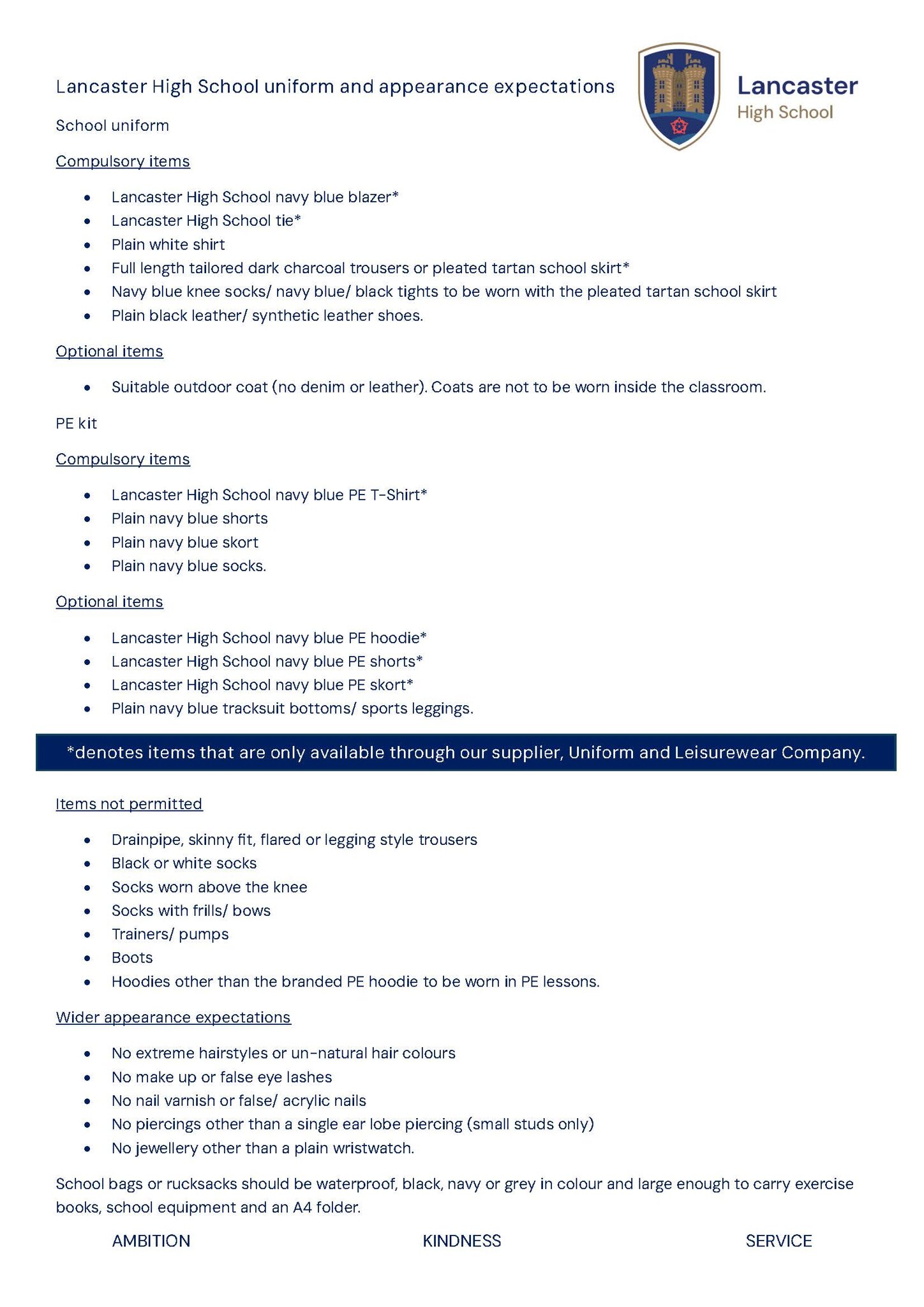“Nothing in life is to be feared, it is only to be understood. Now is the time to understand more, so that we may fear less.”
Marie Curie
Subject Staff
| Name | Role | Contact |
|---|---|---|
| Mrs A Middleton | Head of Science | Contact |
| Mrs S Ainsworth | Classroom Teacher | Contact |
| Mr J Birdsall | Classroom Teacher, Assistant Head of Science | Contact |
| Miss S Livesey | Classroom Teacher, Assistant Head of Science | Contact |
| Miss S Parsons | Classroom Teacher | Contact |
| Miss J Towner | Classroom Teacher | Contact |
| Miss A Maddison-Glover | Science Technician | Contact |
Our Intent:
Our Key Stage 3 curriculum builds on the foundations laid by the primary science curriculum and aims to equip students with the skills and knowledge to be successful. We offer both combined science and separate science at higher and foundation tier at GCSE so that students can follow the science pathway that is most suited to them.
Science enables students to develop their understanding of the world around them so that they can make informed decisions about important issues. To enable them to do this we ensure that we develop their skills in:
- Demonstrating knowledge and understanding of:
scientific techniques and procedures
- Applying knowledge and understanding of:
scientific enquiry, techniques and procedures
- Analysing information and ideas to:
make judgements and draw conclusions
develop and improve experimental procedures
View Science Curriculum Roadmap Overviews
| Biology Roadmap | Chemistry Roadmap | Physics Roadmap |
 |
 |
 |
| View Biology Curriculum Roadmap | View Chemistry Curriculum Roadmap | View Physics Curriculum Roadmap |
KS3 Overview of Units:
| Term 1 Topics | Term 2 Topics | Term 3 Topics | Detailed Overview | |
|---|---|---|---|---|
| Year 7 | Introduction to science, ecosystems, energy, particles, cells | Forces, elements and compounds, reproduction, chemical reactions | Sound, organisation, acids and alkalis, simple circuits, variation | View Document |
| Year 8 | Investigative skills, digestion, separation techniques, light, plant reproduction | Metals, contact forces, body systems, earth structure Further chemical reactions, magnetism, bioenergetics, earth’s resources |
Charge and resistance, evolution, heating and cooling, power. | View Document |
| Year 9 | Disease, periodic table, forces in action, healthy lifestyles | Further chemical reactions, magnetism, bioenergetics, earth’s resources | Universe, inheritance, chemical energy, uses and applications of waves | View Document |
Science Roadmaps
| Biology | Chemistry | Physics | |
| Year 7 | View Document | View Document | View Document |
| Year 8 | View Document | View Document | View Document |
| Year 9 | View Document | View Document | View Document |
Key Stage 4
Web link to specification: https://www.aqa.org.uk/subjects/science/gcse/combined-science-trilogy-8464
| Term 1 Topics | Term 2 Topics | Term 3 Topics | |
|---|---|---|---|
| Year 10 | Biology: B1 cells, B2 organisation (part) Chemistry: C1 atomic structure, C2 bonding (part) Physics: P1 energy, P2 electrical circuits |
Biology: B2 organisation part, B3 infection and response (part) Chemistry:C2 bonding (part) C3 quantitative chemistry, C4 chemical changes (part) Physics: P2 electricity in the home, P3 particle model |
Biology: B3 infection and response part, B4 bioenergetics Chemistry: C4 chemical changes (part), C5 energy changes, C6 rates of reaction Physics: P4 atomic structure and radiation |
| Year 11 | Biology: B5 homeostasis, B6 inheritance Chemistry: C7 organic chemistry, C8 chemical analysis Physics: P5 forces, P6 waves (part) |
Biology: B7 ecology Chemistry: C9 chemistry of the atmosphere, C10 using resources Physics: P6 waves (part) P7 magnetism |
Assessment:
| Paper 1 | Biology 1: B1: Cells, B2: organisation, B3: infection and response, B4: bioenergetics | 1 hr 15 | 16.67% |
| Paper 2 | Chemistry 1: C1: Atomic structure, C2: bonding, C3: quantitative chemistry, C4: chemical changes, C5: energy changes | 1 hr 15 | 16.67% |
| Paper 3 | Physics 1: P1:Energy, P2:electricity, P3:particle model and density, P4: atomic structure and radiation | 1 hr 15 | 16.67% |
| Paper 4 | Biology 2: B5: homeostasis, B6: inheritance and evolution, B7: ecology | 1 hr 15 | 16.67% |
| Paper 5 | Chemistry 2: C6: rate of chemical change, C7: organic chemistry, C8: chemical analysis, C9: chemistry of the atmosphere, C10: using resources | 1 hr 15 | 16.67% |
| Paper 6 | Physics 2: P5: Forces, P6: waves, P7: magnetism | 1 hr 15 | 16.67% |
Qualification type, exam board and syllabus: AQA GCSE Separate Sciences
Web link to specifications:
Biology: https://www.aqa.org.uk/subjects/science/gcse/biology-8461
Chemistry: https://www.aqa.org.uk/subjects/science/gcse/chemistry-8462
Physics: https://www.aqa.org.uk/subjects/science/gcse/physics-8463
Assessment:
Biology:
| Paper 1 |
Biology 1: Cells, organisation, infection and response, bioenergetics |
1 hr 45 | 50% |
| Paper 2 |
Biology 2: homeostasis, inheritance and evolution, ecology |
Chemistry:
| Paper 1 |
Chemistry 1: Atomic structure, bonding, quantitative chemistry, chemical changes, energy changes |
1 hr 45 | 50% |
| Paper 2 | Chemistry 2: rate of chemical change, organic chemistry, chemical analysis, chemistry of the atmosphere, using resources | 1 hr 45 | 50% |
Physics:
| Paper 1 |
Physics 1: Energy, electricity, particle model, radiation |
1 hr 45 | 50% |
| Paper 2 |
Physics 2: Forces, waves, electromagnetism, space |
1 hr 45 | 50% |
Parents / carers can best support pupils by: looking through their books and quizzing them on past topics, encouraging pupils to regularly revisit previous topics and recap key points, discussing science in the news.
| Resource | Link |
|---|---|
| GCSE Pod | https://www.gcsepod.com |
| Seneca Learning | https://senecalearning.com |
| BBC Bitesize | https://www.bbc.co.uk/bitesize/subjects/zrkw2hv |
| Primrose Kitten | https://www.primrosekitten.com/ |
| Free Science Lessons YouTube Channel | https://www.youtube.com/c/freesciencelessons |
| Doc Brown | https://www.docbrown.info/ |



